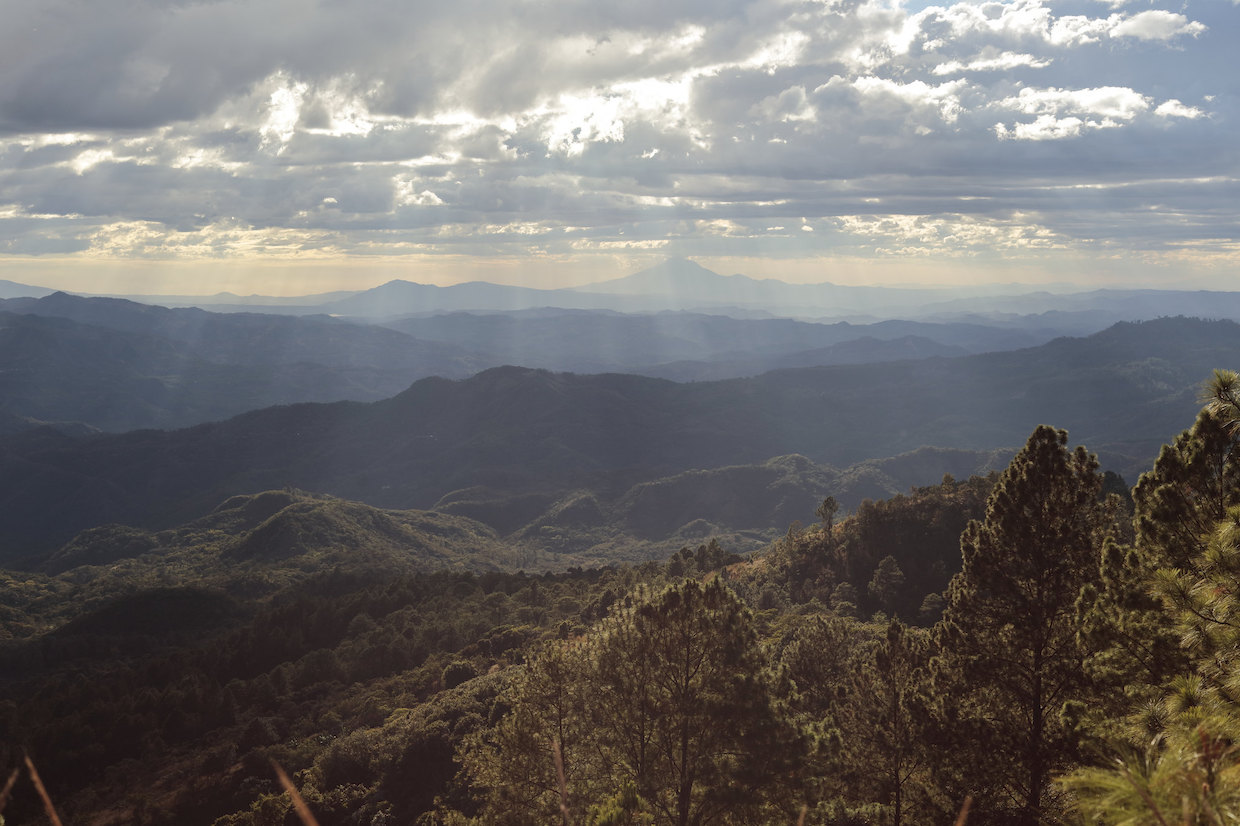
“Perquin, Morazan, El Salvador” by Maren Barbee is licensed under CC BY 2.0.
While green coffees from El Salvador continue to fetch remarkably high prices through high-end specialty coffee auctions, climate vulnerability, labor issues, aging farms, price volatility and a lack of a unified sector-wide strategy continue to threaten the country’s coffee sector as a whole.
These are some of the key takeaways from the latest El Salvador coffee sector report from the USDA’s Foreign Agriculture Service (FAS).
[Note: This is part of a series of DCN stories exploring the FAS coffee annual reports. The U.S. information agency is currently scheduled to deliver 16 annual country-level reports on the coffee sector. Each of those reports come from different authors and field offices.]
The FAS El Salvador post now estimates that coffee production in El Salvador will reach 670,000 60-kilo bags in market year 2023/24, up from the revised estimate of 650,000 bags for the previous year due to the on-year in the coffee plant production cycle.
The report highlights a recent history of labor issues in the Salvadoran coffee sector, driven by historically low prices, lack of investments, an aging farmer workforce, migration and other forces.
“Coffee is still an important source of employment in rural areas. However, the drastic decline in production — as a result of coffee rust, low prices, and a lack of investment — has led to big job losses in the sector,” the FAS post states. “In the past, coffee production accounted for over 100,000 jobs; however this number has continuously dropped reaching a low of 37,005 jobs in the 2019/20 crop. Over the last two crops, jobs have picked up reaching 42,513 for the 2022/23 crop. Coffee is no longer the top source of export revenues in El Salvador and has been replaced by non-traditional products such as processed ethnic foods, tropical fruits, and sugar.”
The United States remains the main export destination for Salvadoran coffee, accounting for 44.4 percent of 2022/23 exports through April 2023. The USDA now estimates that Belgium has overtaken Germany as the second largest export destination, followed by Japan, Italy, South Korea, Australia and the UK.
Moving forward, all these destinations may encounter an increased scarcity of Salvadoran coffee due to a host of issues affecting small-scale farmers and producer organizations, according to the report.
“The future of El Salvador’s coffee sector will depend upon the ability of both producers and government institutions to implement a strategy that includes debt re-structuring; extending repayment periods; and a unified coffee association that oversees research, technical assistance, and quality control; labor; food security; and crop diversification,” the FAS post states. “If these issues are not addressed, the number of farmers that have already abandoned their farms (currently 35 percent) will continue to grow, deepening the labor, environmental, and economic crises.”
One recent boost to the Salvadoran coffee sector has come through a government-led $45 million loan from the Inter-American Development Bank (IDB) to assist small-scale farmers and create the new Salvadoran Coffee Research Institute.
The loan is part of a broader government coffee sector funding initiative launched in 2021 that has otherwise largely stalled due to lack of funding.
“The country’s fiscal deficit issue has put on hold this initiative,” the FAS post notes. “If this plan moves forward, it could pose an opportunity for ailing coffee farmers to become profitable and sustainable in the near future.”
Does your coffee business have news to share? Let DCN’s editors know here.






Comment